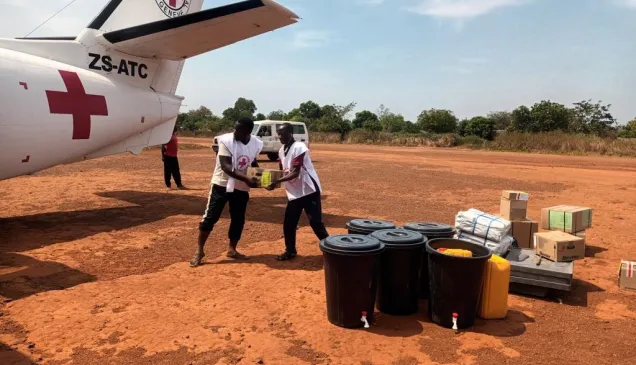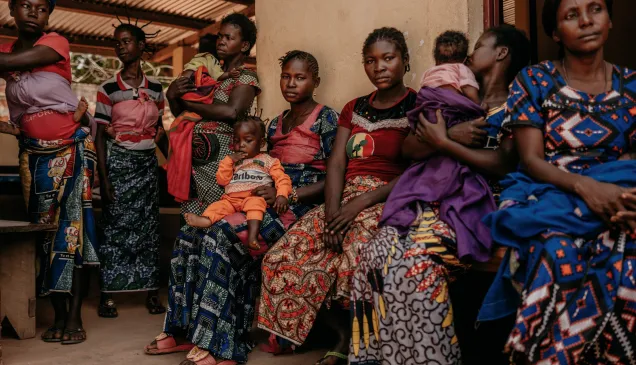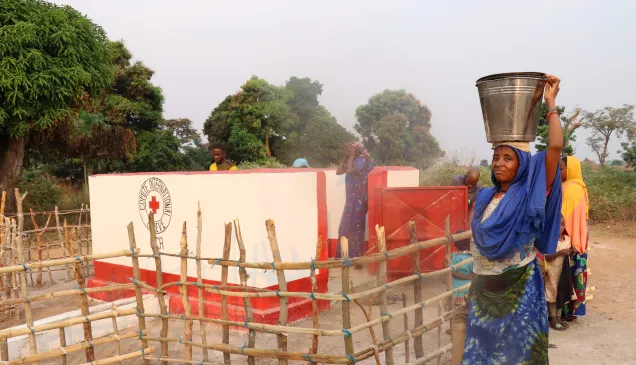Central African Republic: “I wish the world were more aware of what is happening here”
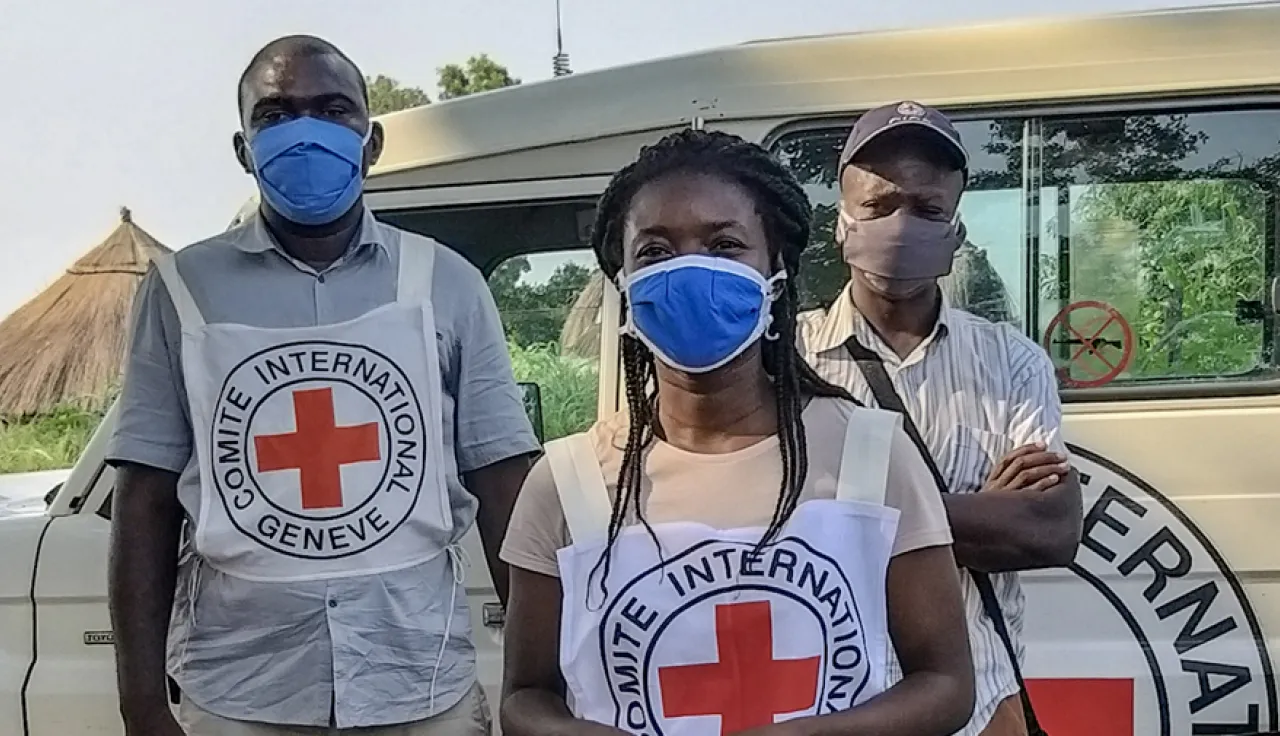
Ene Abah reports from CAR*.
The people around me filled their plates with towering piles of food. I noticed how much they were eating and asked them about it. Their responses were striking: They believed that when you had access to something like food, you should take all you can, because you might have none the next day. You might have to run for your life.
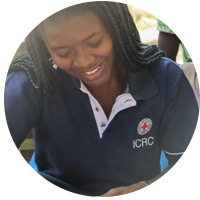
Looking back at the end of my assignment, I am overwhelmed by the scale of suffering I've seen.
The people I worked alongside in the Central African Republic (CAR) lived in constant anticipation of clashes breaking out. Violence was considered normal, and they seemed accustomed to death.
I had heard of the dire situations many people in CAR were faced with, even before I arrived there, from my work with refugees from CAR in Cameroon in 2016. The horror stories and testimonies I heard marked me in their extremity. Three years later I began working in CAR itself, in Bouar, in the country's west, where I worked as a delegate for the International Committee of the Red Cross (ICRC) for nearly two years.
Looking back at the end of my assignment, I am overwhelmed by the scale of suffering I've seen.
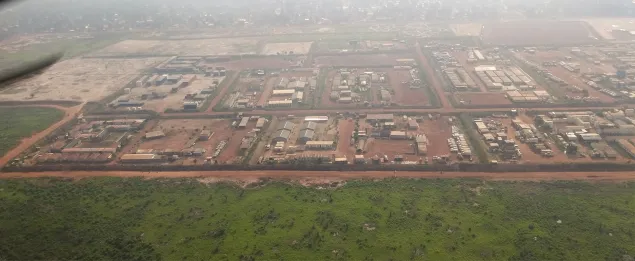
View of Bangui, capital of CAR, from above.
CAR is bordered by Chad, Sudan, South Sudan, the Democratic Republic of the Congo, the Republic of the Congo and Cameroon. It is considered to be one of the poorest countries in the world and has been embroiled in conflict and violence since 2013. Bloodshed and chaos plague many parts of the country to this day, preventing people from leading a peaceful life. Armed groups control about 70 percent of the territory. The peace agreement signed in Bangui in February 2019 between the government and 14 armed groups is a sign of hope but needs to be translated into a meaningful change to the many communities still suffering from violence.
Civilians tend to be on the receiving end of the clashes. Entire villages and sources of livelihood are destroyed. Families lose everything they own and are forced to flee to neighbouring countries or other parts of the country. The ICRC seeks to help as many as we can, but the people here are often forgotten, left to survive on their own. Working with people who have lost everything helps me refocus on what is truly important in life.
In CAR, security is always unpredictable. Things can change in an instant. Each time we go on field trips, I hold my breath. Random robberies and murders are frequent. Rough dirt roads make field trips even more difficult. Rainy season comes with thick mud in which cars get stuck. The few private cars that ply the nearly inaccessible roads are so full of goods and people that it gives a new perspective of how much weight a car can possibly carry.
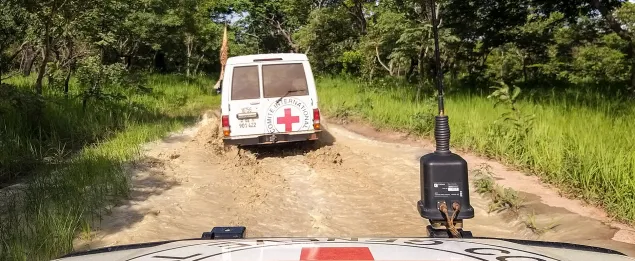
Wading through rain and such a difficult terrain in CAR.
Driving past villages, I see straw roofs held up by sticks as makeshift classrooms. Children walk to school, the chalk boards they carry a proof of enrolment. During the rainy season, schools close because the makeshift structures cannot shield the pupils and the teachers. Overgrown bushes make the classrooms inaccessible. Each time we drive past, children run up to wave at our car. Many of them don't expect a wave in return, so I see how their faces light up when I wave back. Some of them squeal and jump with excitement. These same children see so much violence that rids them of the happiness they deserve. I once walked into a hall and saw a picture on the wall of a man shooting someone, drawn by a child. Sights like these should in no way be normalized for a child.
I'll always remember this one woman, Euridice**. She was in pain and heaved a sigh, not of relief but one filled with anguish. Then tears followed. All I wanted to do was hug her, but I had no way of knowing what would be acceptable to her in that state. She had seen her husband being tied up and killed, a scenario she could never forget. It made me think of my country, Nigeria where the north east is also being ravaged by armed conflict. I imagine that what Euridice had been forced to see could also happen there.
When I chat with young people here, I wonder what hope there is for them. In some places, people walk around with guns and children grow up to see that as normal, then aspire to take up arms someday themselves. I've seen young children setting up barriers on roads expecting that they be paid for passage. This vicious cycle must be broken but it cannot be done through humanitarian aid. People need sustainable peace, development and security.
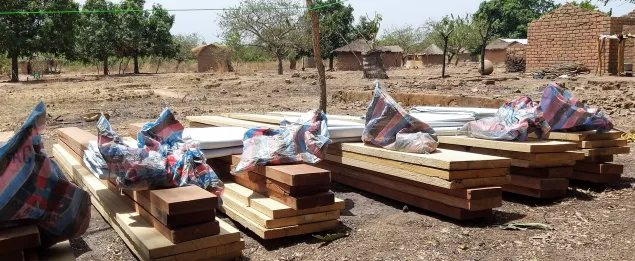
Shelter kits distribution for inhabitants of Benamkor & Bebengueré villages, Paoua, CAR.
In April 2019 we gave wooden planks, nails, plastic sheeting and other construction materials to villagers who had been displaced due to violence and had finally been able to return home. This would help them rebuild their homes that had been set alight during fighting between armed groups more than a year ago. They had been living in makeshift shelters for months. Good wood was scarce and the bit of assistance could greatly improve their living conditions.
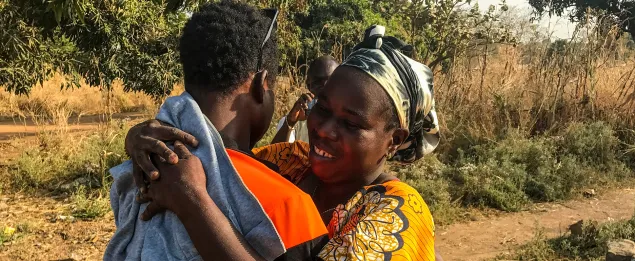
CAR. Bang. He fled to Chad during a conflict in his village, Bang, in April 2017. Through the Red Cross network in Chad, he was found and we found his family (with the help of the Red Cross in CAR). The reunification took place in March 2020. Greeting his grandmother with whom he was reunited.</h2>
One of the most touching memories I have is that of resilience. In one town, a Polish doctor I was chatting with was keen to show me around the hospital he worked in. He is also a priest and has been in CAR for a while. The community is fond of him and together they've worked to improve the health facility. Some contributed sand, others cement, some cleared the land while the doctor rallied donors in his country to send medical equipment. Together they've created something that will last. The community gets the health care they deserve, all thanks to their own initiative and efforts. The hospital even receives some patients from the neighbouring Chad.
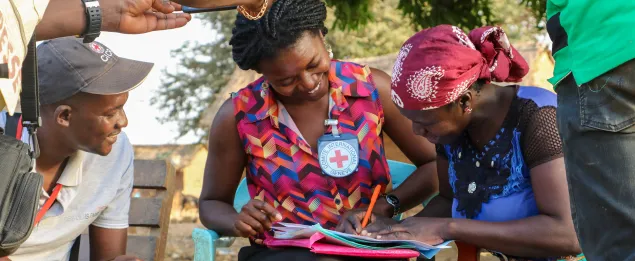
Ene and Davy of the ICRC during a family reunification.
As my time in CAR draws to an end, I wish there were more such initiatives to complement what humanitarian actors such as the ICRC are doing. I wish the world were more aware of what is happening in the Central African Republic. The people here deserve better. Humanitarian aid can only go so far. The government has a lot to do and the people equally have a role to play but the world can help them significantly by at least paying attention.
* Ene ended her mission last December, days before the beginning of the current crisis
**Alias

